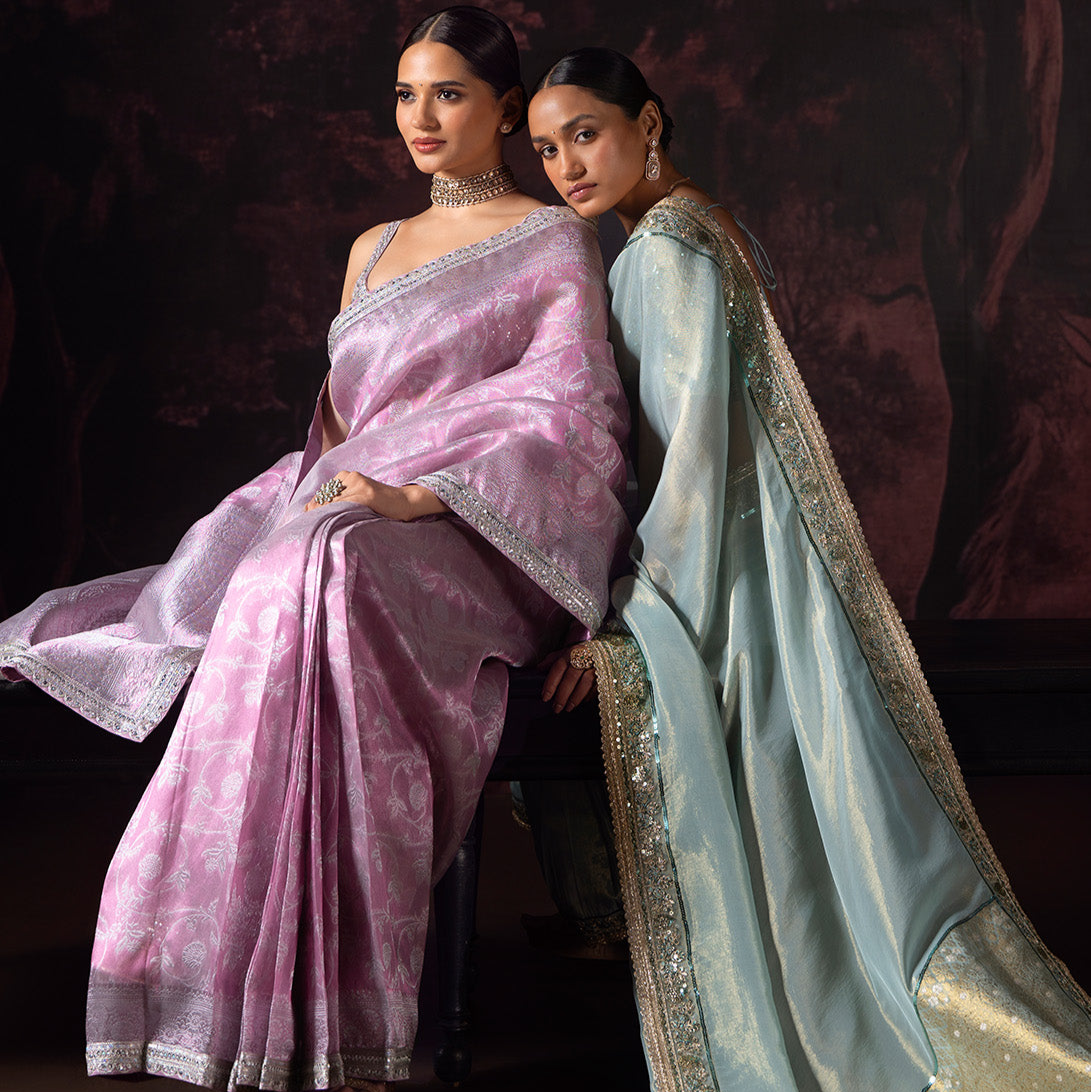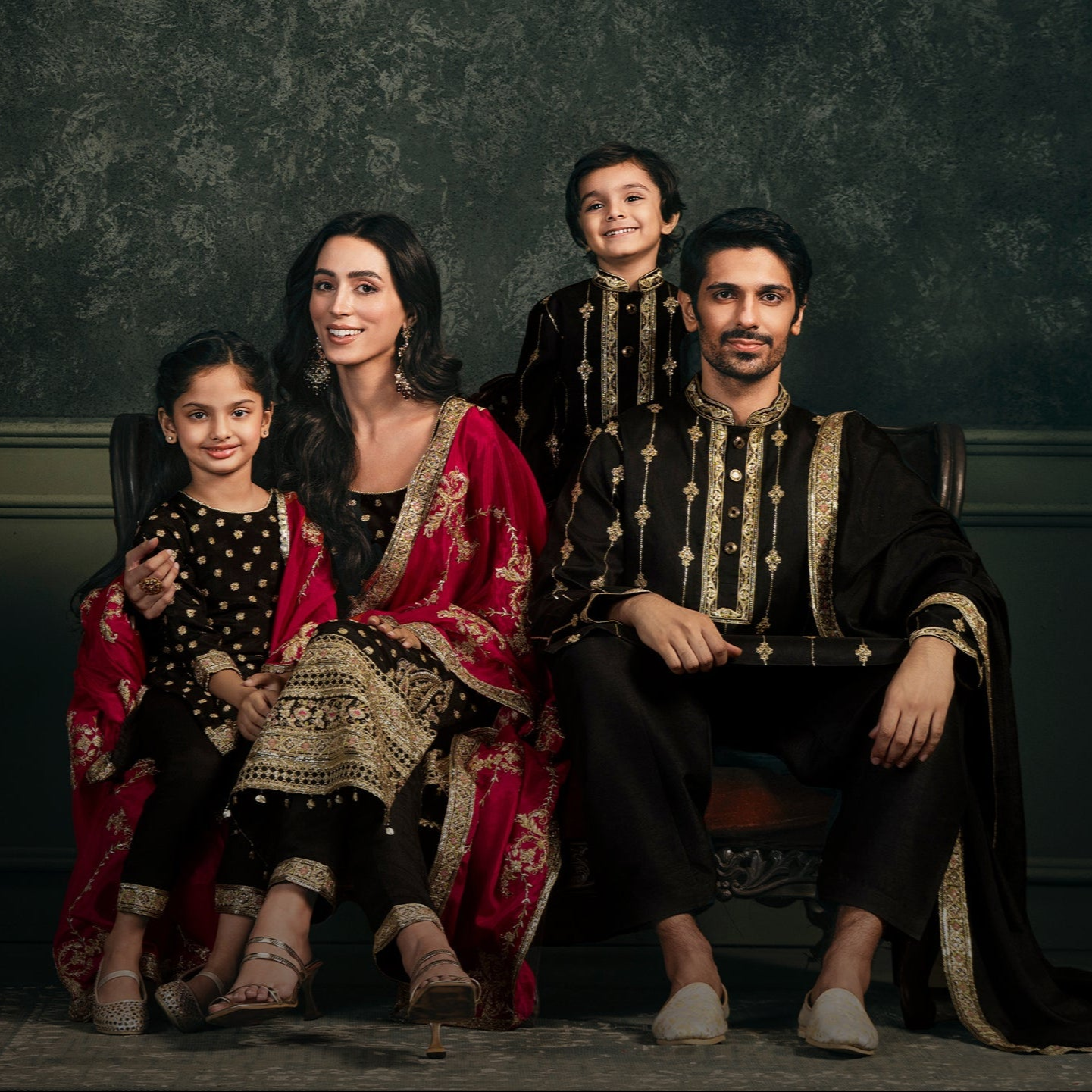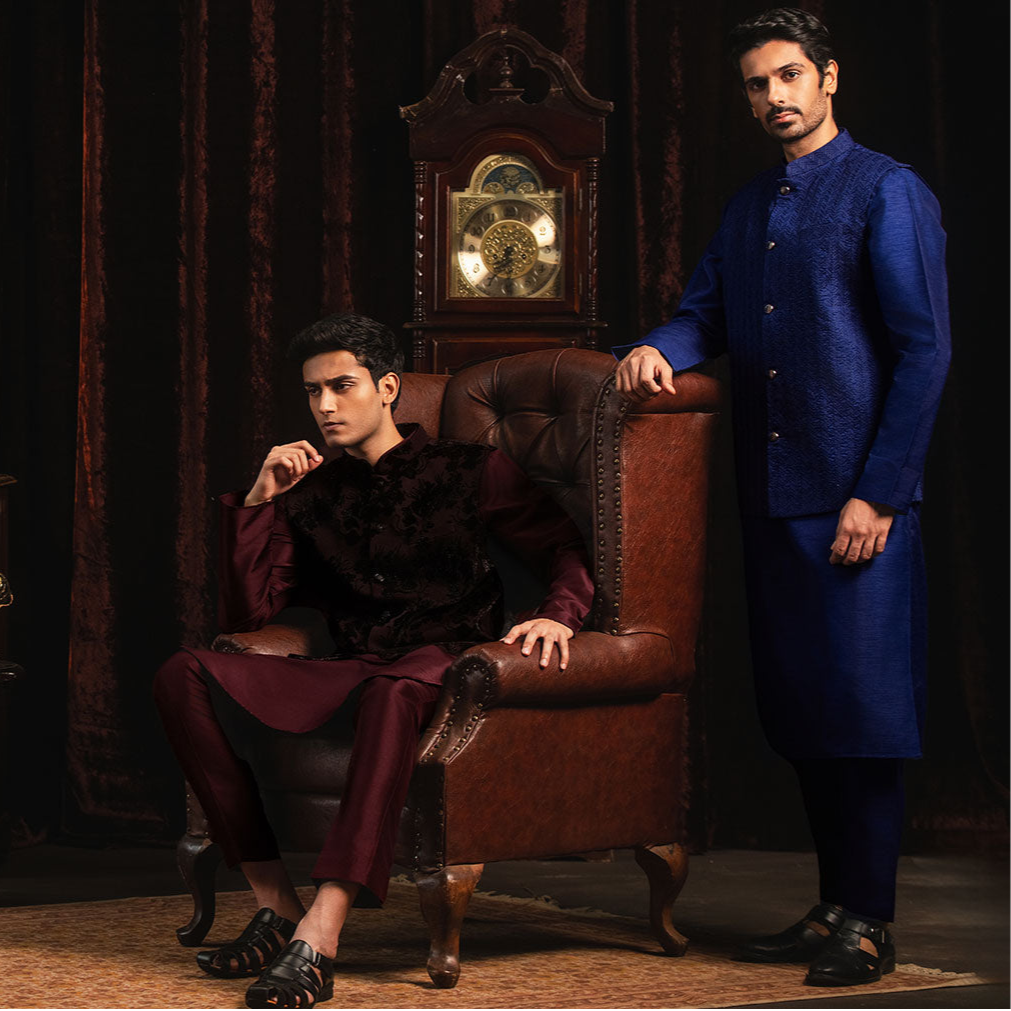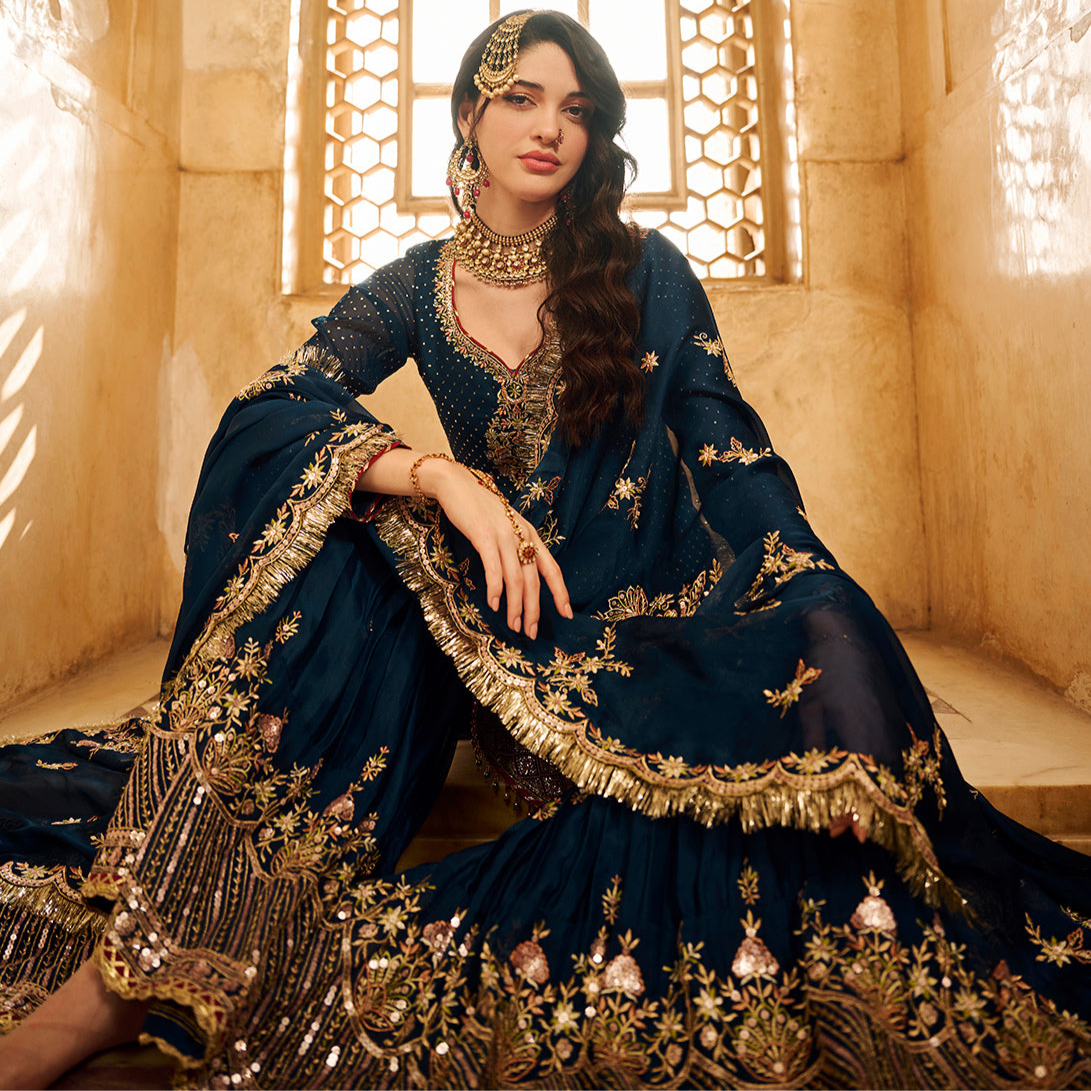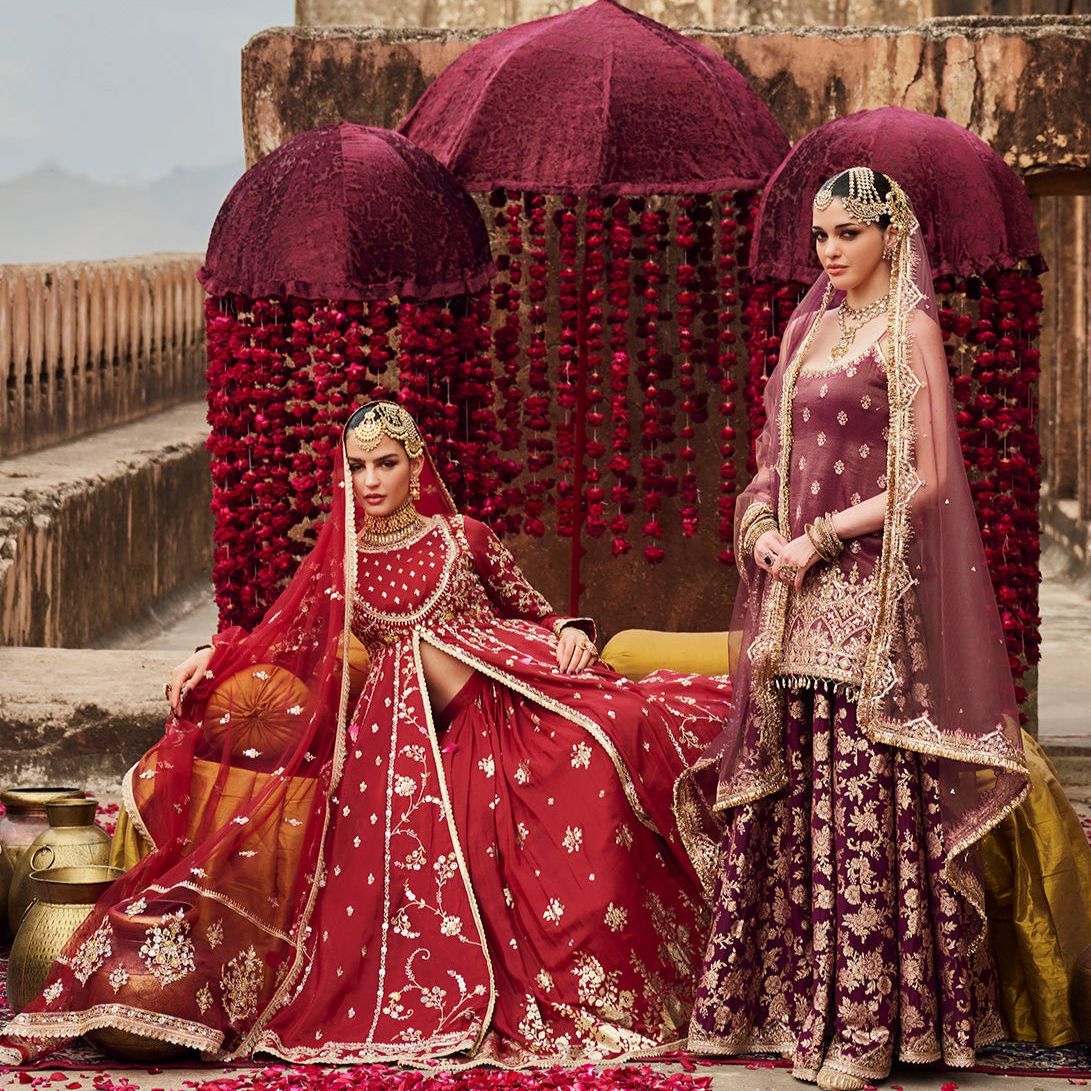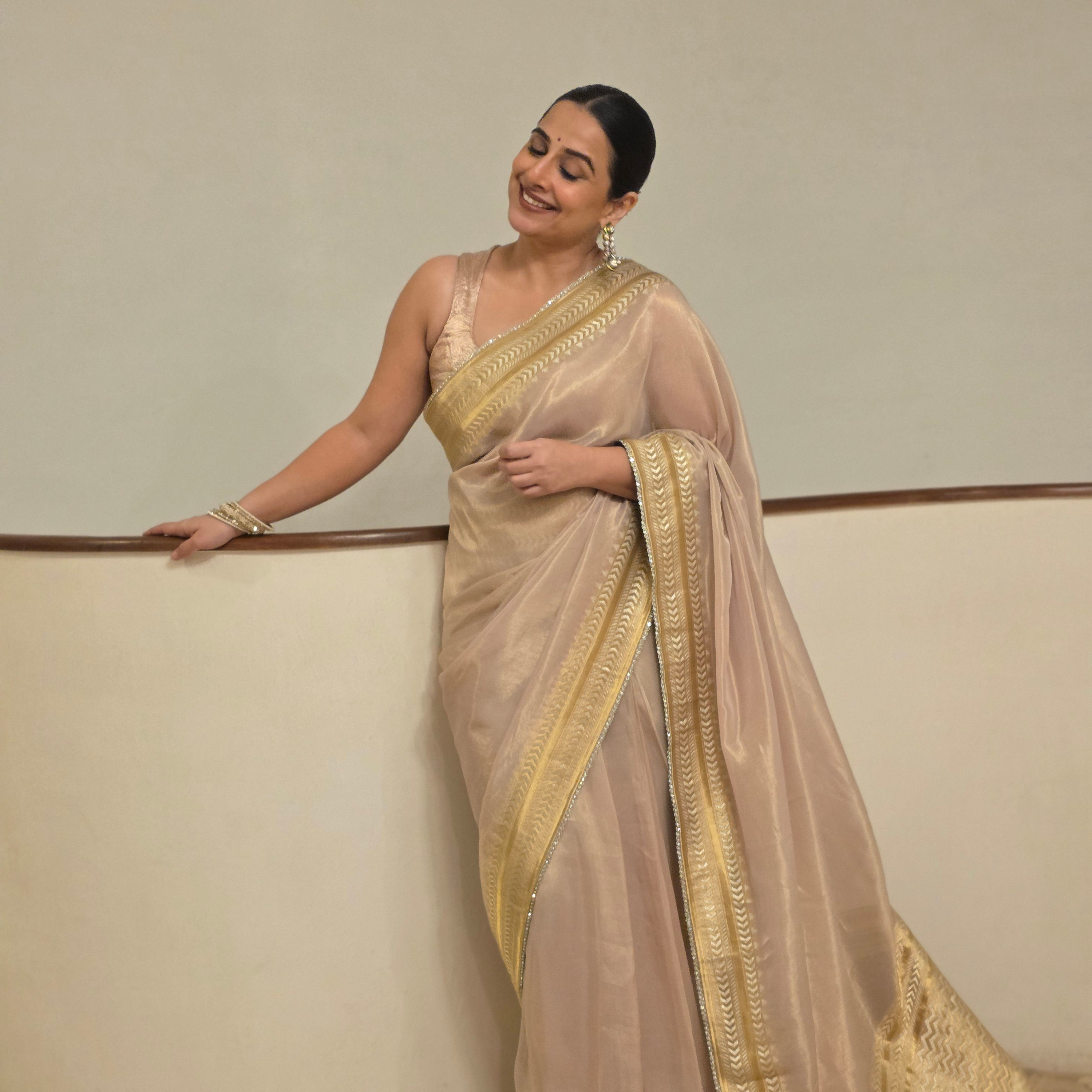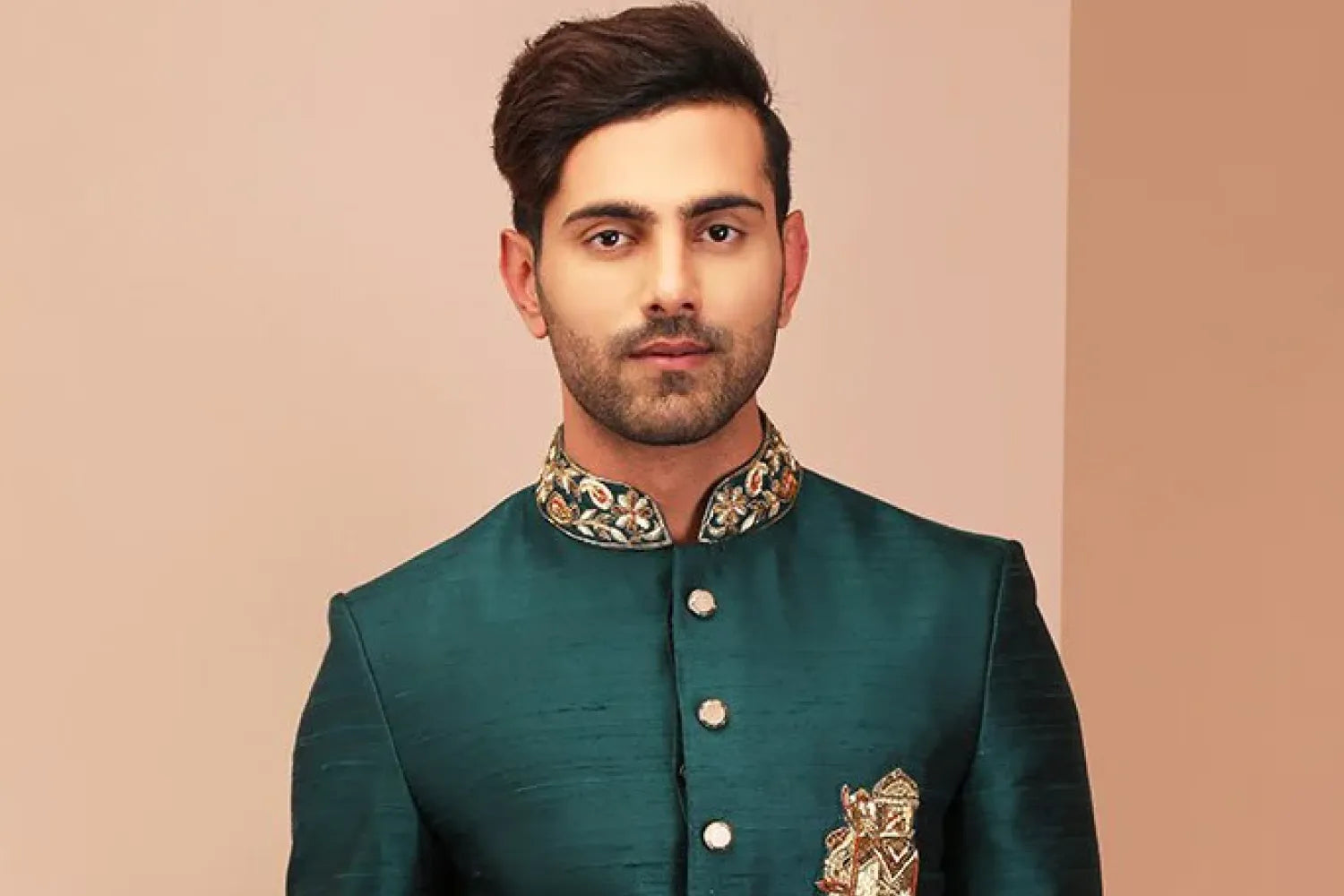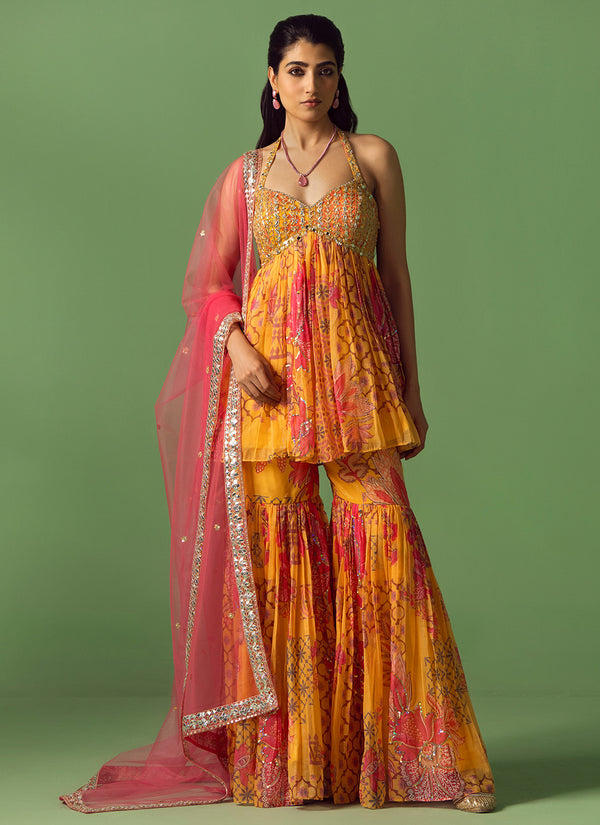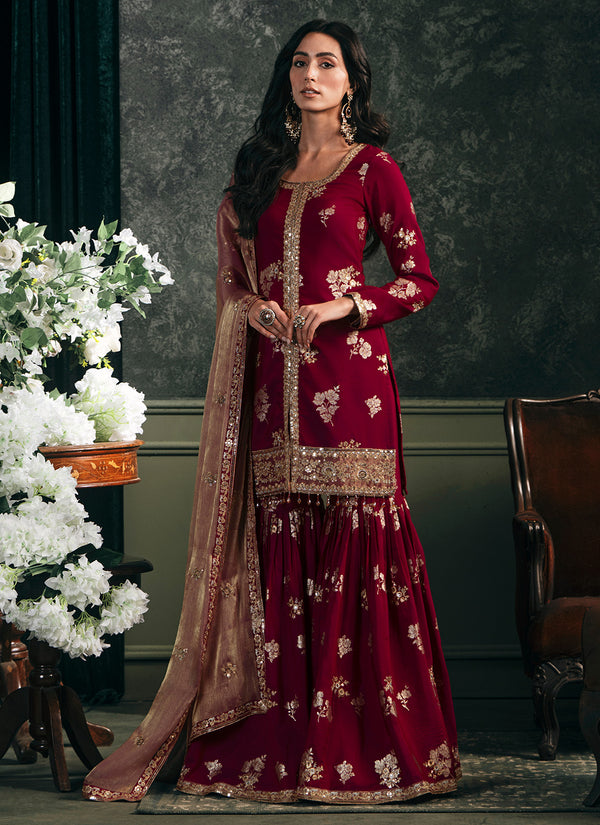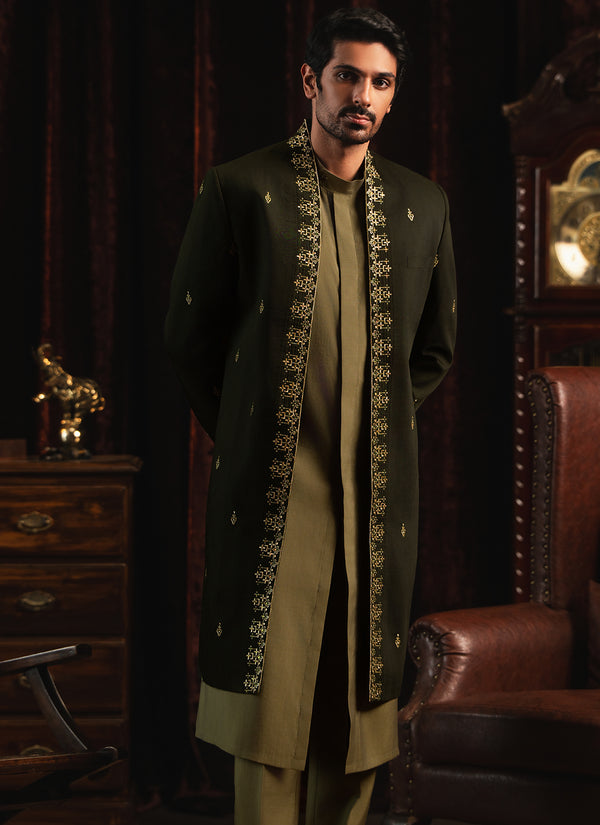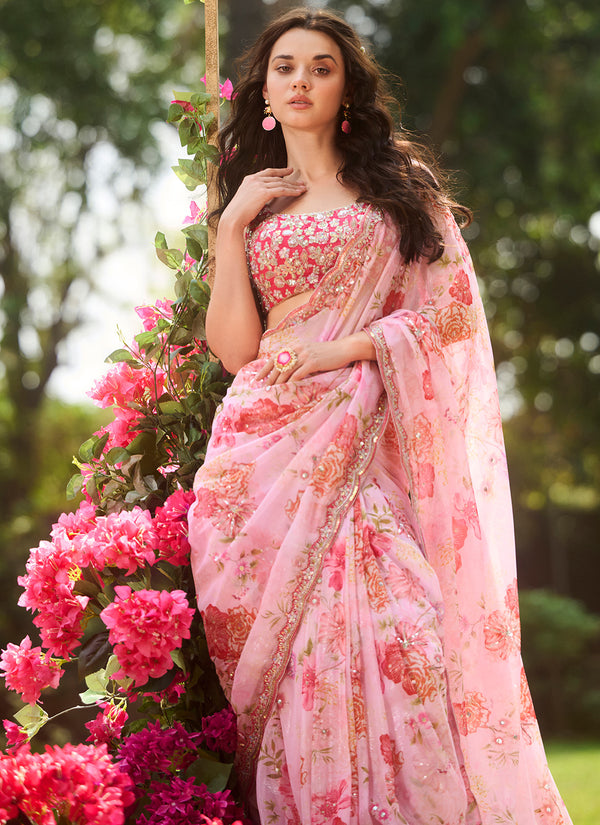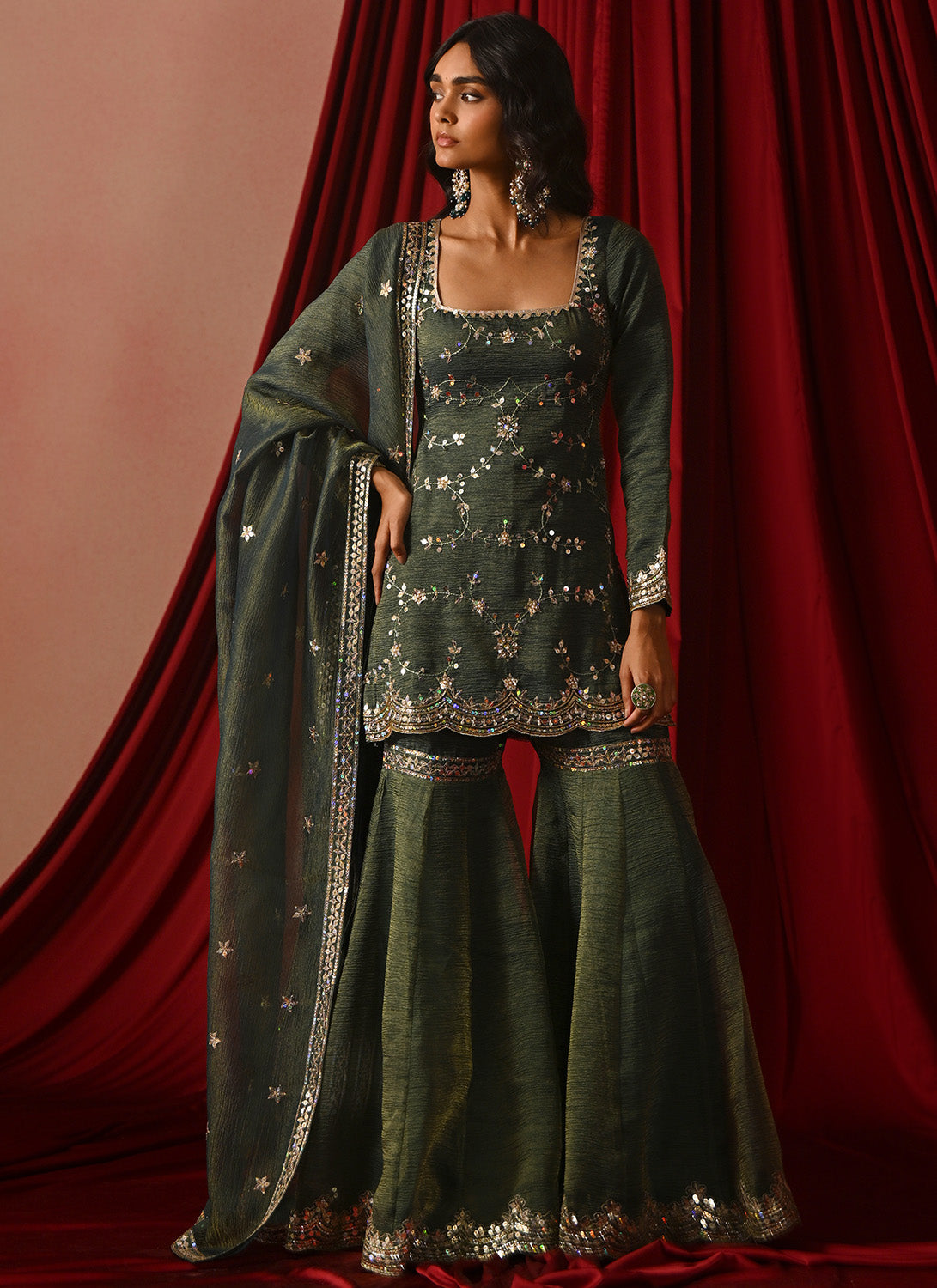
What Are Gharara Suits? History, How To Style, & Shoppable Looks
Gharara suits are one of the most elegant and historic silhouettes in South Asian fashion. Known for their flared pants and ornate detailing, they’ve stood the test of time, from Mughal courts to modern wedding wardrobes. But what exactly is a gharara suit, and how do you style one?
In this post, we break down what makes a gharara unique, how it differs from other ethnic styles, and where you can wear it, from festive events to intimate gatherings. Whether you’re a bride, bridesmaid, or just love ethnic wear with flair, here’s your guide to rocking a gharara suit with confidence.
What Is A Gharara Suit?
A Gharara suit is a traditional South Asian outfit predominantly worn by women in India and Pakistan. It consists of three main components: a pair of wide-legged pants with a distinctive flare from the knees downward, a kurti (short tunic), and a dupatta (scarf or stole).
If you’ve ever admired the regal charm of old photographs from Lucknow or the Mughal courts, you’ve probably seen women wearing ghararas. This elegant and culturally rich attire is designed to make a statement with its dramatic silhouette and intricate detailing.
Originating in the Mughal era and later becoming a hallmark of Lucknowi fashion, ghararas were once seen as symbols of aristocracy and refinement. They were worn by royal women in brocades, silks, and velvets, often adorned with heavy zardozi or gota patti embroidery.
Over time, they became a cultural staple for festive occasions, particularly in North India and Pakistan, where ghararas remain a beloved choice for weddings and traditional ceremonies. Unlike palazzos or sharara suits that flow evenly from the waist, ghararas are uniquely structured, giving them a more formal and polished silhouette.
Today, designers reimagine them in lighter fabrics, softer colors, and modern embroideries to make them wearable for contemporary occasions while still celebrating their old-world grace.
Gharara vs Sharara: What’s the Difference?
The terms gharara and sharara are often used interchangeably, but there are some important differences.
Sharara suits consist of wide-legged pants that are flared evenly from the waist to the hem. The flare is fluid, continuous, and less structured, giving it a flowy, breezy vibe. Shararas are often paired with long kurtas or mid-length tunics and are a favorite for bridesmaids and wedding guests who want something elegant yet easy to move in.
A gharara suit, on the other hand, has that distinct seam or band right at the knee. This seam gathers the fabric below it into a dramatic flare, creating a more defined, almost skirt-like effect at the bottom half. Ghararas are traditionally styled with shorter kurtis, allowing the structure of the pants to take center stage.
Think of it this way: shararas are free-flowing and relaxed, while ghararas are tailored and architectural. If you want a look that’s slightly more formal, with heritage appeal and sharp definition, a gharara suit is the way to go.
When to Wear a Gharara Suit
Because of its traditional roots and rich aesthetic, a gharara suit is perfect for festive and celebratory occasions. Weddings are the most obvious choice, and ghararas are a bridal favorite, especially for functions like mehendi, sangeet, or nikah ceremonies. Brides often opt for heavily embellished ghararas in jewel tones or pastels to strike a balance between tradition and personal style.
Festivals like Eid or Diwali are another great time to wear a gharara. Its grandeur feels festive without being overwhelming if styled in lighter fabrics or with minimal embroidery. For daytime gatherings or family functions, you can choose a cotton or chiffon gharara with subtle detailing, which gives you comfort and elegance in equal measure.
Even for cocktail evenings, where gowns and lehengas dominate, a velvet or sequined gharara styled with a chic kurti can create a look that is unconventional yet striking. Essentially, the gharara suit can be as traditional or modern as you want it to be, depending on how you select your fabrics, colors, and accessories.
Modern Gharara Suit Trends to Try
Over the past few years, ghararas have had a major revival in South Asian fashion, with celebrities, brides, and influencers embracing this silhouette in fresh, creative ways. If you’re curious about styling one today, here are some trends to explore.
Pastel ghararas are everywhere. Shades like mint green, blush pink, ivory, and powder blue give a soft, breezy effect and make the gharara feel lighter, perfect for daytime occasions. The Nude Pink Embroidered Organza Gharara is a dreamy pastel option, with its soft pink hue and lightweight organza fabric creating an effortlessly graceful vibe. The subtle embroidery adds just the right touch of detail, making it perfect for daytime weddings, garden celebrations, or festive gatherings where you want to keep the look delicate and refined.
Minimalist embroidery is another key trend. Instead of heavily adorned pieces, many designers are opting for subtle sequins, mirror work, or delicate thread embroidery, which makes the gharara more versatile for semi-formal events. The Off White Embroidered Gharara Suit is a beautiful minimal option, with its soft neutral tone and delicate embroidery giving it an elegant, understated charm. Perfect for those who love keeping things simple yet stylish, it works well for daytime functions or intimate festive gatherings.
Cape and jacket layers have also entered the scene. Wearing a sheer cape or embroidered jacket over your kurti not only modernizes the look but also reduces the need for a dupatta, giving a structured yet contemporary finish.
Velvet luxe is an unbeatable option for winter weddings. Deep jewel tones like sapphire blue, wine red, or emerald green in velvet fabric create a regal, old-world vibe that feels incredibly glamorous.

Mix-and-match styling is another popular approach. Many brides and fashion enthusiasts are pairing gharara pants with crop tops, corset blouses, or peplum cuts, allowing the silhouette to feel fresh while keeping its traditional essence. The Dusty Rose Embroidered Gharara Style Saree is a unique contemporary piece that blends the elegance of a saree with the comfort of a gharara. The soft dusty rose shade adds a romantic touch, while the innovative drape and embroidery make it stand out as a modern twist on tradition.

Fusion accessories also help modernize the look. Instead of heavy, layered jewelry, many are choosing statement earrings or sleek chokers, paired with embroidered juttis or block heels for balance. The Orange Floral Embroidered Silk Gharara Suit is a vibrant pick that instantly adds warmth and cheer to any celebration. Pair it with big jhumkas and chunky bangles, you’re good to go.
Shop the Look
Gharara suits embody a rich cultural heritage, adorned with heavy embellishments for grand celebrations or featuring subtle prints for casual outings. This style exudes timeless artistry and grace. With their unique construction, deep history, and adaptability to modern fashion, they remain one of the most captivating silhouettes in South Asian wardrobes.
Now that you know what gharara suits are and how to style them, the next step is finding the right one. Lashkaraa's women's collections combine traditional craftsmanship with modern aesthetics. You’ll find pieces in soft pastels with delicate threadwork, rich velvets with gold embroidery, and versatile designs that work beautifully across different occasions.
Whether you’re leaning toward a pastel gharara for a daytime mehendi, a velvet style for a winter reception, or a simple embroidered version for festive family dinners, this outfit ensures you look polished and graceful. Make a gharara truly your own while still honoring its rich roots by experimenting with colors, accessories, and modern styling.
If you are ready to add this lovely silhouette to your wardrobe, explore Lashkaraa’s latest Gharara Suits Collection and discover styles that bring heritage and contemporary flair together seamlessly.

